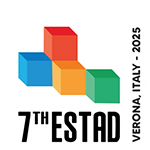Speaker
Description
A sufficient water supply forms the base for a continuous production in iron and steel industry. Due to climate change, limitations of water outtake occurred during summer periods as well as changes of the freshwater composition to higher salt contents increasing the corrosion potential. Beside this, EU water directive, national framework and EU goals as “Zero Waste” or Zero Discharge” lead to an increased demand for closing of water circuits as far as possible and limitations in discharge. Further on, due to transformation of the steel industry to green steel, an increase of the freshwater demand is expected for increased cooling water demands at the direct reduction process as well as for the production of hydrogen. This requires the use of alternative water resources as organic loaded waste waters or process waters with high potentials of scaling due to the presence of fluoride and calcium. Main obstacles for reuse are beside the complex and strongly varying composition, the handling of the concentrates of the desalting processes.
For this purpose, suitable technologies and its combinations have been investigated and successfully demonstrated in field trials under operational conditions, e.g. at different streams of an integrated steel work or tin plant production. Exemplary streams were e.g. discharge gas washing water, blow down continuous casting or organic and solid loaded effluents from chemical-physical treatment plants. The investigated approaches consisted of a reliable removal of solids by ceramic flat sheet filtration, as mandatory step before any kind of desalting, desalting and softening by membrane-based capacitive deionization and a fraction in mono- and bivalent concentrates by selective nanofiltration. Depending on the case, water recovery rates up to 79% have been achieved by energy demands below 0.5 kwh/m³. Further on, a biocide based on sodium hypochlorite have been produced, by electrochemical treatment of the monovalent concentrate.
